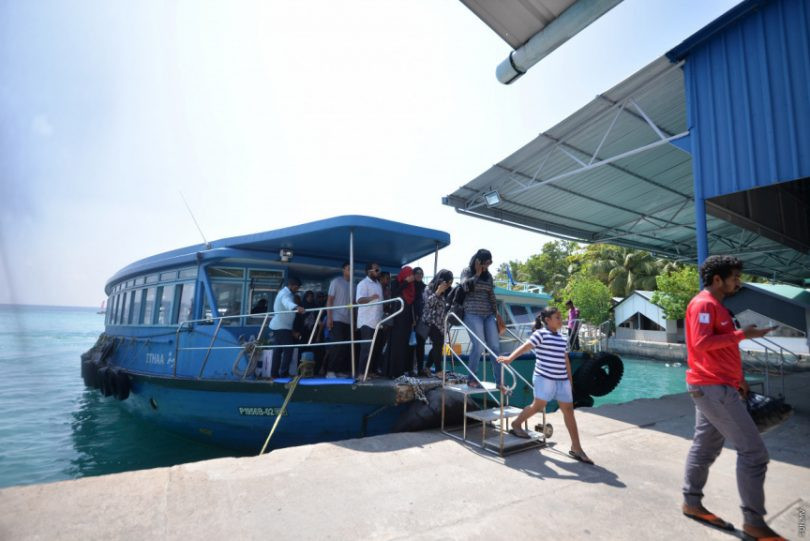The decision was reached at Tuesday's cabinet meeting


A ferry operated under MTCC
The government is to contract the first phase of the 'Integrated National Public Ferry Network' project to the Maldives Transport and Contracting Company (MTCC).
President Ibrahim Mohamed Solih reached the decision on Tuesday following consultations with the cabinet of ministers, which stemmed from a paper submitted by the Ministry of National Planning, Housing and Infrastructure.
During the cabinet meeting, members discussed the paper revolving around the introduction of a large-scale ferry network project that would pave efficiency, affordability and convenience for citizens.
Under the project, the government will introduce sustainable passenger and cargo ferry services to all the administrative islands of the country.
The planning ministry’s proposal outlines six central regions to provide two sperate networks within the regions, which will link maritime transport with land and air transport, as identified in the National Spatial Plan (2020-2040),
The two separate networks are divided between passenger transit and cargo supply ferries carrying goods and services.
The networks carry the promise of connecting islands within the specified areas via three types of links which are commute links, non-commute links and lastly, highway links.
The government had earlier highlighted that an integrated national transport service is a national priority, in both the National Spatial Plan and the Strategic Action Plan (2019-2023).
The project approved by the cabinet on Tuesday will also contribute in achieving several Sustainable Development Goals (SDGs) through its extensive socio-economic impact.
Further, the project aims to facilitate inclusive regional development by connecting people and services, fast-track social and economic growth, enhance efficiency in the delivery of public services and improve mobility and accessibility for citizens in all regions of the nation, in line with the Decentralization Act.